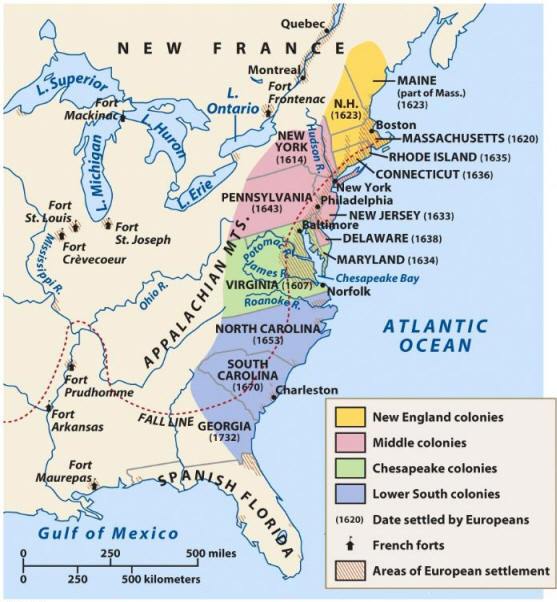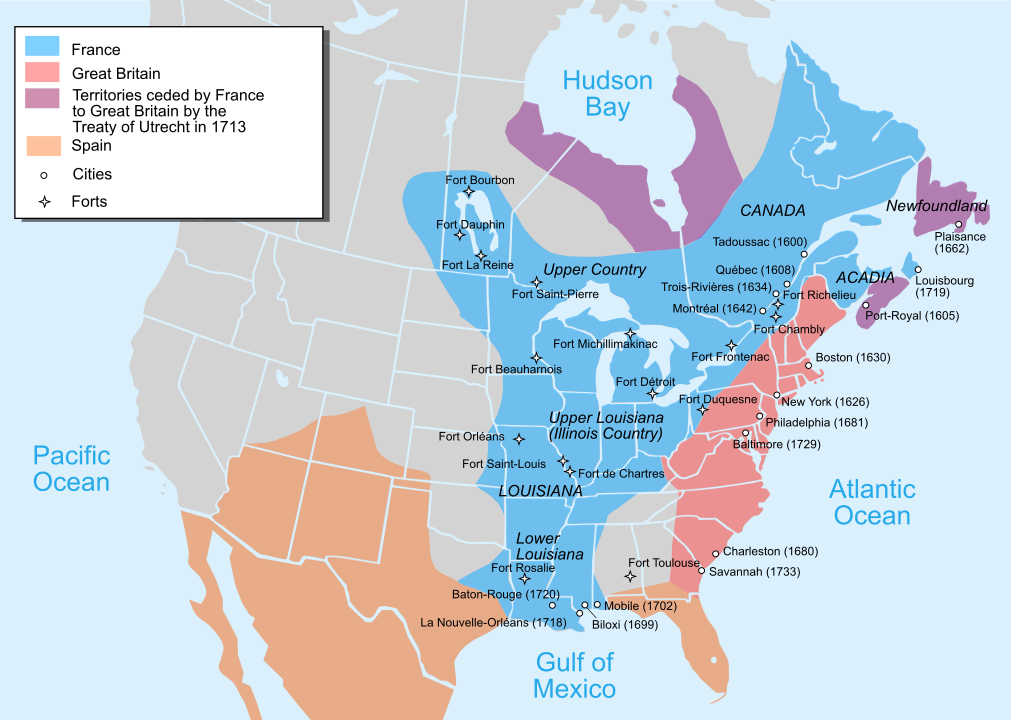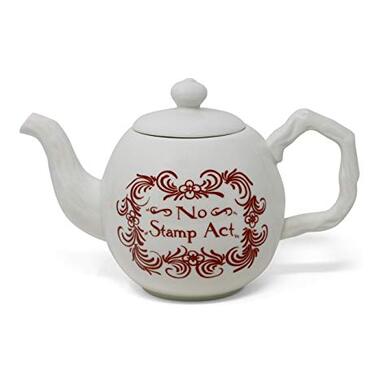Lesson 5 - Thirteen Colonies, the Seven Years' War and stamps.
|
Thirteen colonies
In 1760 there were two and a half million people living in the thirteen colonies. About two million of the settlers had emigrated from Europe, most of them from Britain and Ireland. They went for various reasons. Some wanted to escape from religious persecution. Others hoped to make their fortunes in a new world where land was cheap and work plentiful. About half a million Americans had no such hopes. They were the slaves. They had been captured in Africa and sold as slaves to white Americans who needed labourers to grow cotton, sugar and tobacco in the hot southern colonies. They and their children and their children's children could never hope to enjoy the freedom of the new world. How Britain ruled its American colonies The thirteen colonies were part of the British Empire. In 1760 its king was George III. George ruled his Empire with the advice of his parliament, which was made up of wealthy landowners. George appointed a governor to rule each colony in his name. Each colony also had an elected Assembly which advised the governor about what the colonists wanted. For many years this system worked well. The colonists had a great deal of freedom. They could raise their own taxes and decide how to spend most of the money. But the governor kept them in touch with what the king wanted and the king often wanted tax. |
As early as 1651, the British government had sought to regulate trade in the American colonies, and Parliament passed the Navigation Acts to pursue a policy intended to ensure that trade enriched Great Britain but prohibited trade with any other nations. The policy brought the British into conflict with the colonial settlers. Subsequent English governments continued in their efforts to tax certain goods however, passing acts regulating the trade of wool, hats, and molasses (liquid sugar). For example the Molasses Act of 1733 was particularly unpopular with the colonists, as a significant part of colonial trade relied on molasses. The taxes severely damaged the New England economy and resulted in a surge of smuggling, bribery, and intimidation of customs officials.
The Seven Years' War
The Seven Years' War was a global conflict fought between 1756 and 1763. It involved every European great power of the time and spanned five continents, affecting Europe, the Americas, West Africa, India, and the Philippines. The conflict split Europe into two coalitions, led by the Kingdom of Great Britain (including Prussia, Portugal, Hanover, and other small German states) on one side and the Kingdom of France (including the Austrian-led Holy Roman Empire, the Russian Empire, Bourbon Spain, and Sweden) on the other. The war was successful for Great Britain, which gained the bulk of New France in North America, Spanish Florida, some individual Caribbean islands in the West Indies, the colony of Senegal on the West African coast, and superiority over the French trading outposts on the Indian subcontinent.
The Seven Years' War was a global conflict fought between 1756 and 1763. It involved every European great power of the time and spanned five continents, affecting Europe, the Americas, West Africa, India, and the Philippines. The conflict split Europe into two coalitions, led by the Kingdom of Great Britain (including Prussia, Portugal, Hanover, and other small German states) on one side and the Kingdom of France (including the Austrian-led Holy Roman Empire, the Russian Empire, Bourbon Spain, and Sweden) on the other. The war was successful for Great Britain, which gained the bulk of New France in North America, Spanish Florida, some individual Caribbean islands in the West Indies, the colony of Senegal on the West African coast, and superiority over the French trading outposts on the Indian subcontinent.
As far as this unit is concerned, the Seven Years' War was significant for two reasons. Firstly, for the French the cost of the war and the territorial losses incurred, seriously weakened the monarchy. This financial debt and the later cost of military support against the British became a central cause of the French Revolution (see Matu 2). Secondly, for the British, the cost of defending their colonies had been enormous. The British Government decided to make the colonialists help pay towards the cost of the war by raising their taxes. The colonists protested at this. They said it was not right that a parliament in England, elected by people who lived over 3,000 miles away could tax them. They felt that they should only pay taxes imposed by an Assembly (parliament) they had elected themselves. The British ignored their protests. In 1765 the London Parliament introduced the Stamp Act. It put a tax on documents like contracts and wills. News of the Stamp Act caused outrage in the American colonies. Groups of men known as the 'Sons of Liberty' organised resistance to it. The slogan of these 'Patriots' was 'No taxation without representation'.*
* Patriots, also known as Revolutionaries, Continentals, Rebels, or American Whigs, were the colonists of the Thirteen Colonies who rejected British rule during the American Revolution, and declared the United States of America an independent nation in July 1776. Their decision was based on the political philosophy of republicanism—as expressed by such spokesmen as Thomas Jefferson, John Adams, and Thomas Paine. They were opposed by the Loyalists, who supported continued British rule. (Wikipedia)
Activity 2
1. Explain why the Seven Years' War helped cause both the French and American revolutions.
2. What was the Stamp Act and why was it important?
1. Explain why the Seven Years' War helped cause both the French and American revolutions.
2. What was the Stamp Act and why was it important?
Extension
Alistair Cooke famous 'Letters from America' were one of the most iconic pieces of radio journalism produced in the UK. In the 1970s he also produced one of the first modern documentaries for the BBC, his personal history of the USA. The first two episodes are below.
Alistair Cooke famous 'Letters from America' were one of the most iconic pieces of radio journalism produced in the UK. In the 1970s he also produced one of the first modern documentaries for the BBC, his personal history of the USA. The first two episodes are below.
|
|
|



